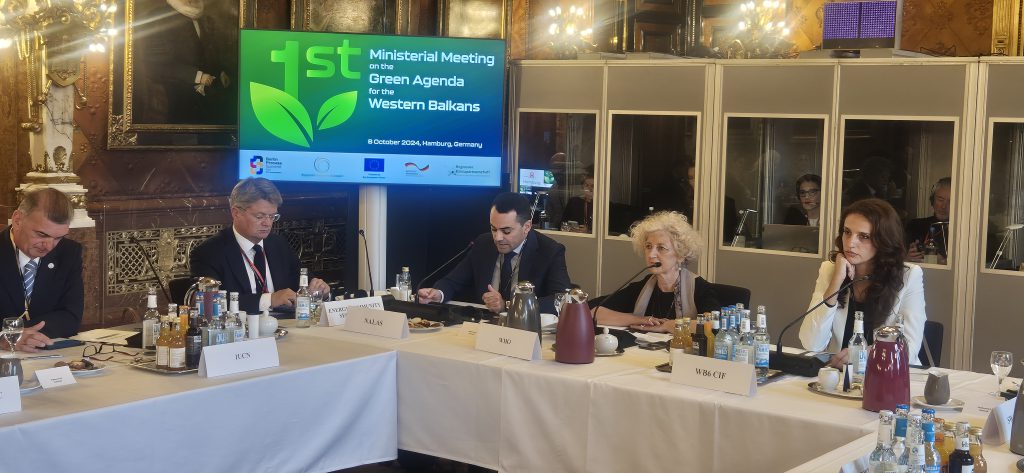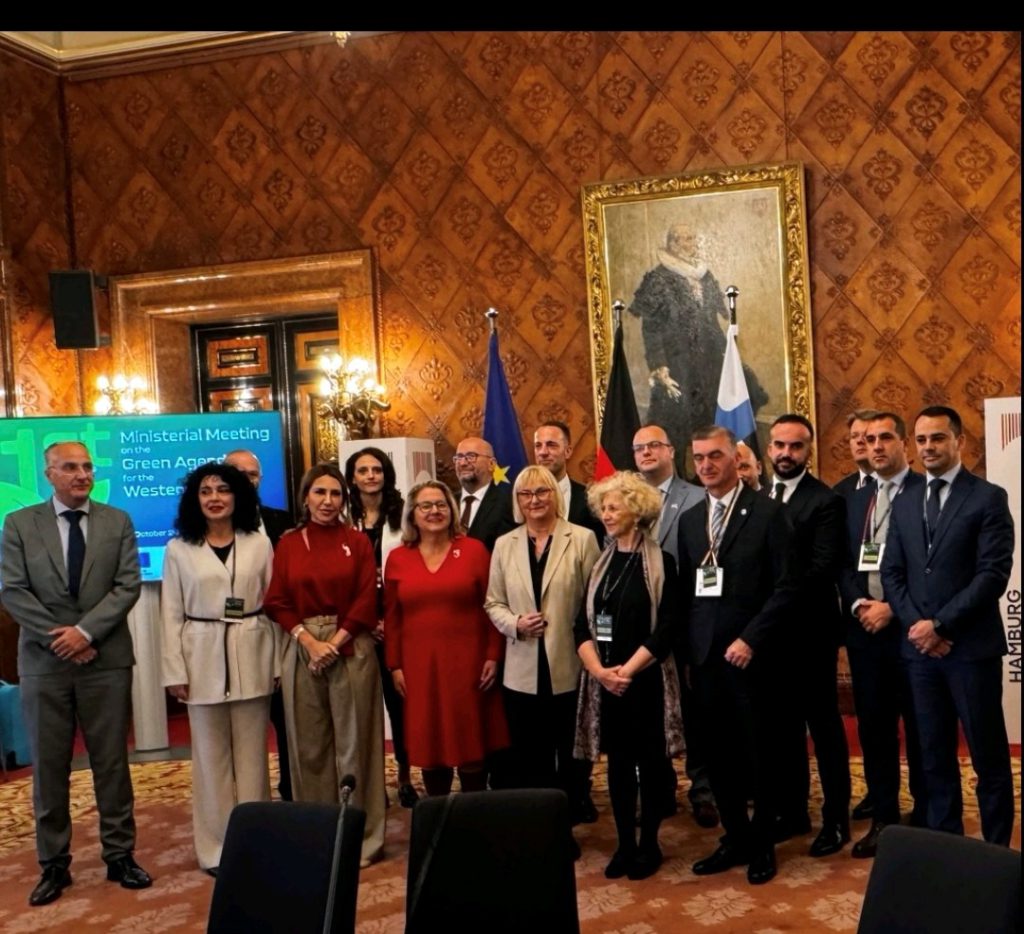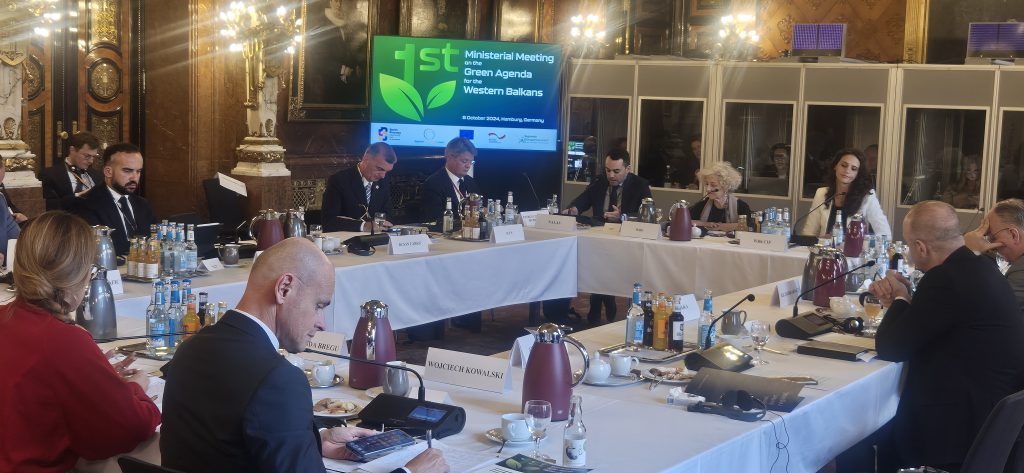
NALAS took part in the First Ministerial Meeting on the Green Agenda for the Western Balkans (GAWB), organized by the Regional Cooperation Council (RCC) in cooperation with the German Federal Ministry for Economic Cooperation and Development and the European Commission. This meeting, held today in Hamburg, brought together key stakeholders from the region, including ministers and regional actors, to assess progress, address challenges, and set future goals for advancing environmental sustainability and climate resilience in the Western Balkans.

Mayor Dušan Raičević, President of NALAS, emphasised the crucial role of local governments in driving the green transition. He stressed out that while national and regional strategies are essential, only local-level actions can achieve real change. “Local governments are at the heart of this transformation,” stated Mayor Raičević, highlighting their “frontline role in addressing climate change, improving air quality, managing waste, water protection and fostering sustainable energy solutions.”

However, Raičević also outlined the significant challenges local governments in the region face. He noted that only about one-third of local governments in the Western Balkans have developed environmental strategies, indicating the urgent need for more comprehensive planning and resource allocation. Furthermore, financial constraints remain a critical barrier, with local governments in Southeast Europe having significantly lower per capita revenues than their European counterparts.
NALAS continues to advocate for greater support and resources for local governments to meet the ambitious goals of the Green Agenda. Through its Knowledge Centre and upcoming Covenant of Mayors Office for Southeast Europe, NALAS is committed to empowering local authorities with the expertise, tools, and networks necessary to make substantial progress on climate and energy targets.
As part of the 2024 Berlin Process, this Ministerial Meeting focused on the implementation of the Green Agenda Action Plan, with particular attention to regional cooperation and strategic guidance for achieving climate goals. Key initiatives such as the Regional Action Plan on Prevention of Plastic Pollution, including Marine Litter, and the Western Balkans Climate Adaptation Roadmap were highlighted as key measures to ensure long-term environmental sustainability in the region.
By ensuring sustained support from international partners, particularly the EU, WB local governments can be well-positioned to advance the Green Agenda, paving the way for a promising and sustainable, climate-resilient future in the Western Balkans.